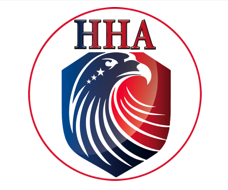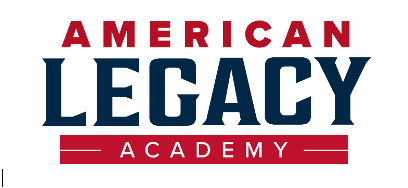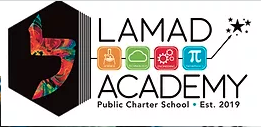Love your LOI! How to write a letter of interest for a grant
- Peggy Downs

- Jun 11, 2022
- 5 min read
Updated: Aug 13, 2024
School leaders, board members, and grant writers spend a lot of time thinking about grants. Is it worth the time? Does your school qualify? How do you find grants? Is there any money out there? Grants can be an important source of funding for schools.
Once you find a grant you’d like to apply for, you may be faced with the requirement to submit a letter of interest (LOI) before you are invited to send a full grant proposal. A letter of interest is a common gate-keeping strategy for nonprofit foundations. They want to know if your program or project might be a good match for them. They want to make sure that what you’re requesting is within their area of interest and funding range. It’s a fair request, actually. But how do you write a strong letter of interest that helps you get past the gate? Keep reading to find out!

Tell Me More
It may be easy to just draft a letter and send it off, hoping for the best. But there is a strategy to writing letters of interest so that your project gets the attention it deserves. When you write an LOI, your goal is to present an exciting, concise description of your proposed work, and get them to say, “Tell me more.” A good LOI is a condensed version of your full proposal, which means you have already thought through the details and planned your program.
Many funders understand that a formal grant application is not the best place to tell your story. Online applications ask specific questions and leave little room for creativity. You may be limited by word or character count, page length, or overall file size. A good LOI covers the details of your project and funding request, but it also expresses your enthusiasm, expertise, and commitment in your own words.
A Few Helpful Resources
As a grant writer and former charter school leader, I’m here to share best practices from my own experience as well as from the experts. Let’s start with my favorite grants database. If you are serious about grants for your school, you need an easy and reliable source for current grant opportunities. I recommend Grant Station. The subscription fee is reasonable and the database is extensive. I have found the information to be accurate and up to date. You can learn more at https://grantstation.com/
While you are researching potential grants, be sure to start with the four basics:
Is your school eligible for this grant?
Do the funder’s priorities match your goals?
Is the funding amount in line with what you need?
Does the timeline work for your project or program?
If the answers to these questions are positive, it can be helpful to check out prior award winners to learn more about the funder’s priorities.
Do they fund organizations like yours?
Do they fund organizations in your geographic region?
Do they fund your type of project?
Next, I have read more books on grant writing than I’d like to admit and I have a few favorites. If you plan to learn to write grants yourself, you need to invest some time in learning what works. Either of these books will give you a solid foundation in grant writing.
And finally, if you want a simple workbook that was designed to help school leaders write better grants, check out my book:
As an Amazon Associate I earn from qualifying purchases. You pay nothing extra. Any commission I earn comes at no additional cost to you. Thank you for your support!
LOI Step-by-Step
Whether you plan on taking the time to write the grant internally or seek outside consulting, the following steps will guide you in understanding what a good LOI looks like. You can use the following template and suggestions to practice crafting your own LOI or to evaluate an LOI written by someone else.
A Few Key Points
Always customize your letter for each funder. Although the program description may be copied, the introduction, connection to the funder’s goals, and possibly the funding request should be reviewed and adapted for each letter.
Your final LOI should be one to three pages long and printed on your school’s letterhead. You’ll need to attach or include a copy of your 501(c)(3) letter. The letter should be signed by your school’s CEO or other senior leader in charge of fundraising.
Start with a program or project proposal that you have already fully developed. This means you know your goals, activities, outcomes, budget, and evaluation measures. If you start with a vague idea for a program, the funder will recognize this and you are far less likely to attract their funding.
Call the funder to verify the name and contact information for the program manager. Find out their preferred title and salutation. Confirm if they prefer to receive the letter by mail or email.
Elements of an Effective LOI
Who are you? Share your title and role, your school’s name, mission, and founding date. Describe the general purpose of your proposed work and the target population you plan to serve.
Why should they care? Review their grant priorities and goals, and then use their own words to show why you think you are a good match.
Why is this work important? Provide data or tell a story that illustrates the need and/or impact of your proposed program.
What will you do? Describe your program goals, activities, expected outcomes, and what success looks like.
How much are you seeking? Do you have other sources of funding? Briefly describe your budget expectations, any other sources of support, and what you will use the funding for.
What’s next? Express your desired result and how you can be contacted for more information.
Print the LOI on your school’s letterhead, and have it signed by the CEO. Attach your IRS nonprofit letter and any other documents the grant funder may have requested. Make a note of the date you sent the letter so you can follow up at a later date if needed.
Letter of Interest Template
Download this FREE TEMPLATE to help you plan and draft a compelling Letter of Interest for your school.
I'd Love to Help
If you have read this far and you are thinking, “Can’t I just hire someone to do this for me?”, the answer is YES! I work with charter schools across the USA to develop grants. My mission is to help 100 school leaders write successful grants in the next 5 years. How can I help you? Check out my website to learn more or contact me at peggydowns@gmail.com with any questions. I’m happy to help!
















Comments